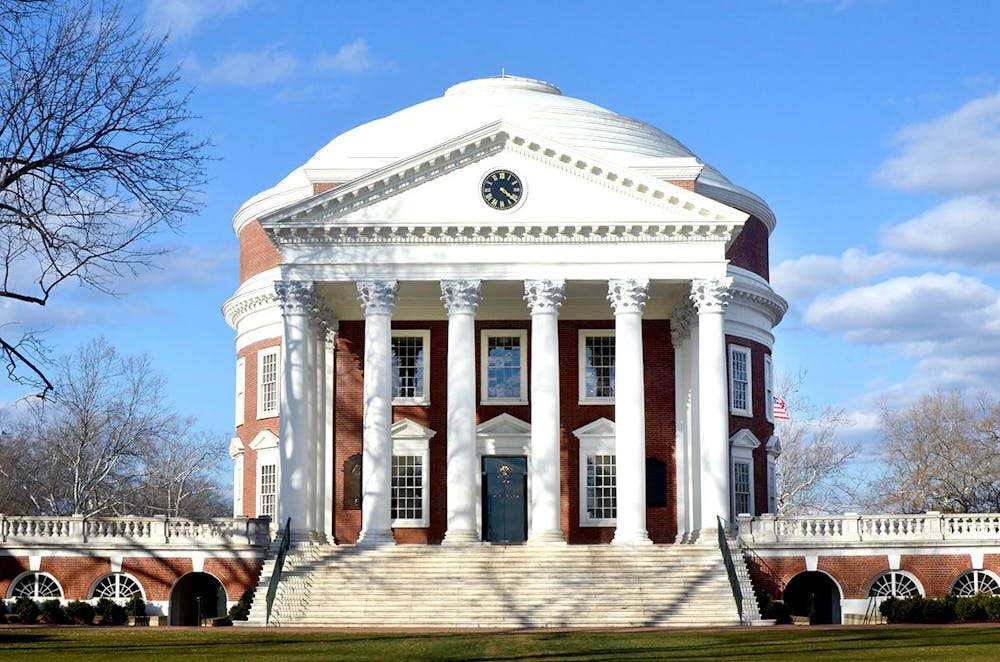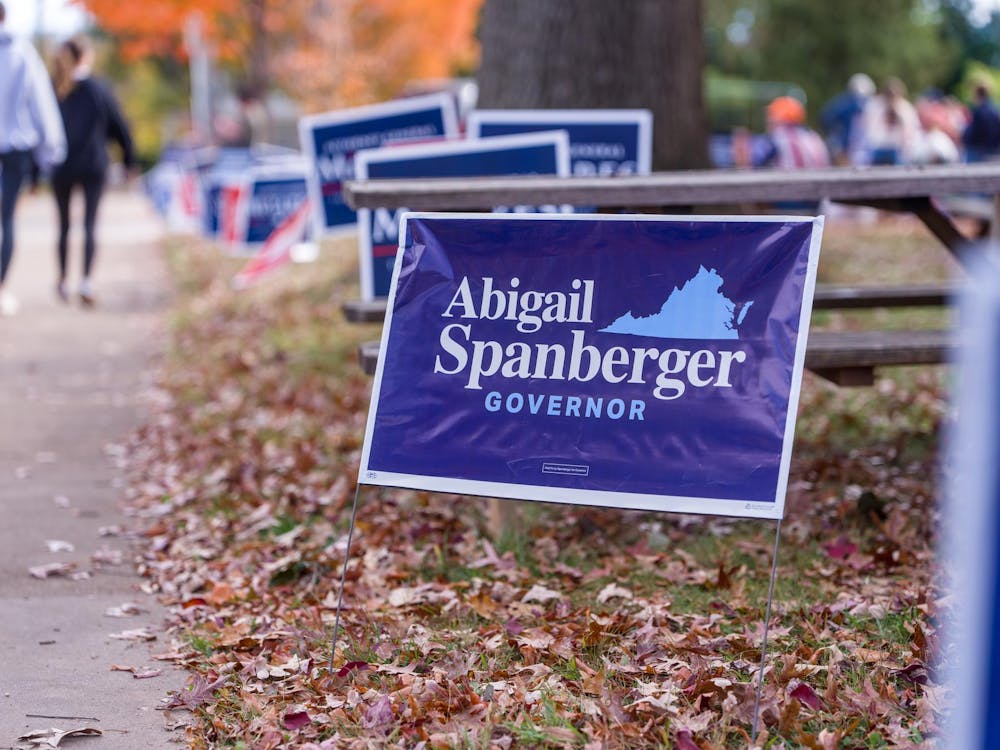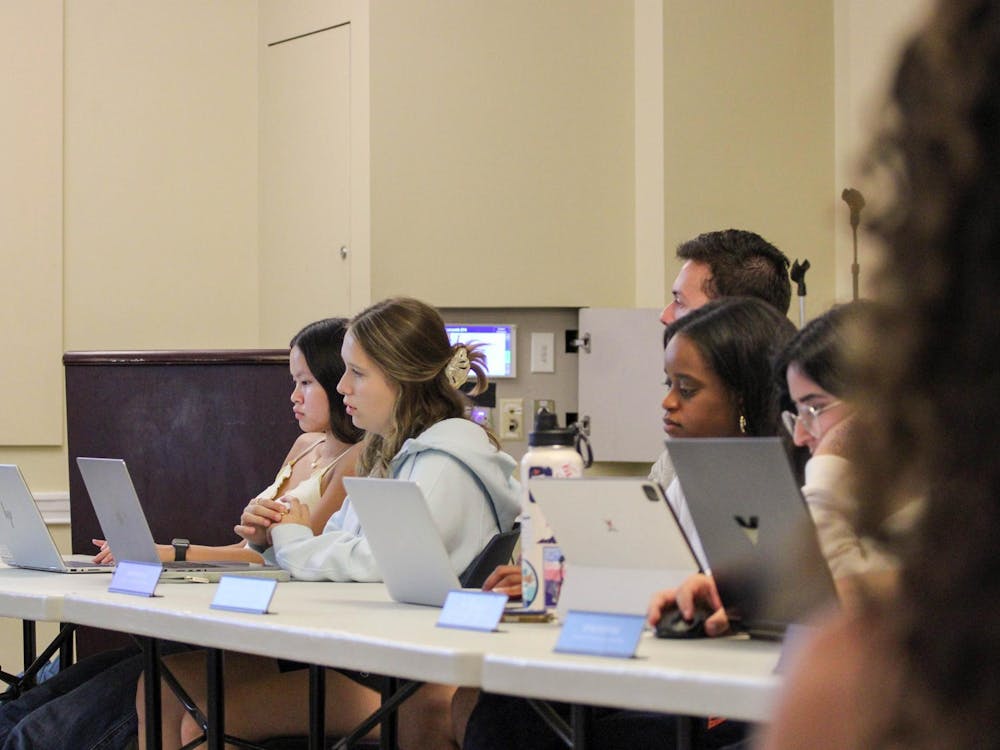The University has rejected the “Compact for Academic Excellence in Higher Education,” which it received from the White House and Department of Education Oct. 1, according to a community statement released Friday evening by Interim University President Paul Mahoney.
The Compact and accompanying letter invited the University and eight other institutions to join an agreement which, in return for signing on to a series of conditions, would provide the University with preferential access to research funding and federal partnerships.
In his email, Mahoney shared the letter which he sent to the Department of Education Friday, in which he said that the University does not wish to receive any preferential treatment for federal funding.
“We seek no special treatment in exchange for our pursuit of those foundational goals. The integrity of science and other academic work requires merit-based assessment of research and scholarship,” Mahoney wrote. “A contractual arrangement predicating assessment on anything other than merit will undermine the integrity of vital, sometimes lifesaving, research and further erode confidence in American higher education.”
In his letter, Mahoney did not say that he has definitively rejected the Compact and suggested that he looks forward to future collaboration with the federal government.
“Higher education faces significant challenges and has not always lived up to its highest ideals. We believe that the best path toward real and durable progress lies in an open and collaborative conversation,” Mahoney wrote. “We look forward to working together to develop alternative, lasting approaches to improving higher education.”
The Compact outlined multiple conditions across ten pages, including ensuring a “marketplace of ideas,” through measures including the abolition of institutional units which “punish, belittle or spark violence against” conservative ideas. Other conditions included freezing tuition for five years, screening international students for “American and Western values,” and ensuring admissions and hiring practices adhere to anti-discrimination law.
In the letter, Mahoney said that the University agreed with many of the principles laid out in the Compact, including what it said regarding admissions practices, affordability, free speech and anti-discrimination regarding students, faculty and staff.
“We also agree with many of the principles outlined in the Compact, including a fair and unbiased admissions process, an affordable and academically rigorous education, a thriving marketplace of ideas, institutional neutrality, and equal treatment of students, faculty, and staff in all aspects of university operations,” Mahoney wrote. “Indeed, the University of Virginia leads in several of these areas and is committed to continuous improvement in all of them.”
The University’s rejection of the Compact comes after four other universities have already declined to join. The Massachusetts Institute of Technology was the first to reject the Compact Oct. 10, followed by Brown University Oct. 15 and both the University of Pennsylvania and the University of Southern California Oct. 16.
In response to receiving the Compact, Mahoney shared with the community that he had formed a working group to assess the document and, in a joint statement with Board of Visitors Rector Rachel Sheridan, asked community members to submit their opinions on the Compact via an online form. The working group’s assessment of the proposal has not been released publicly, nor has the results of the form.
Since the Compact was sent, community members have expressed opposition to the Compact — the Faculty Senate passed a vote urging the University to reject it Oct. 3. Clay Dickerson, Student Council President and fourth-year College student, also signed a joint statement Oct. 9 in partnership with student leaders at six other invited institutions asking their universities to reject the Compact. Community members organized a protest Friday morning which called on Mahoney and members of the working group to reject the Compact.
The Wall Street Journal reported today that representatives from the universities which had not made a decision regarding the Compact — U.Va., Dartmouth College, the University of Texas, Vanderbilt University, and the University of Arizona — were invited by White House officials to a Friday meeting to discuss the Compact. The White House also extended the invitation to Washington University in St. Louis, the University of Kansas and Arizona State University.
This is a developing story. Please check back for updates.







